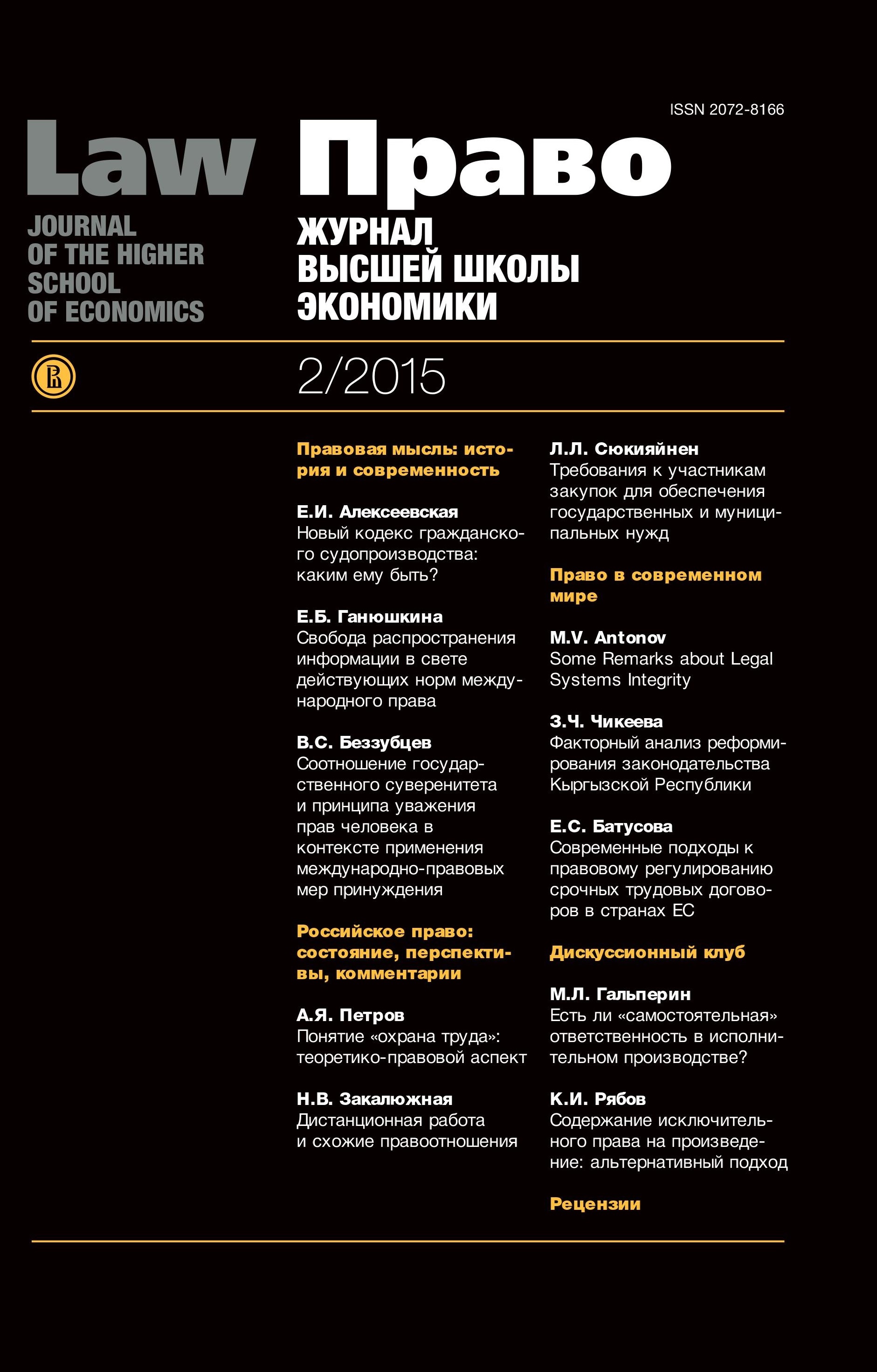Some Remarks about Legal Systems Integrity
Аннотация
This paper aims to analyse the philosophical premises on which the idea of unity of law (the identity of legal systems) is based. In the history of legal philosophy, this idea found its main arguments in the presumption of totality of legal regulation. Such totality affected the philosophical tenets of holism, according to which law is not limited to positive-law rules and institutes. Law refers to supreme values, which supersede legal instruments created by human beings and collectives to regulate their behaviour. This argument implies that there are higher values, such as justice, good, etc., which underlie all social relations and which provide the binding force for positive law. The author argues that this line of thought is based on philosophical objectivism and naturalism, and can easily lead to the primacy of the social over the individual. To substantiate the idea of the systematicity of law, one can turn to modern debates on the logic of social cohesion and construct a legal system identity as a purely intellectual hypothesis necessary for thinking about law. This integrity can be described as a unity of discourse, or as a unity of societal practices. This reconstruction of the integrity of law can be extended by appealing to the basic ideas of the normative philosophy of law (from Hart and Kelsen to Raz and Dworkin) and is reconcilable with the conception of normative systems of Bulygin–Alchourron.


















